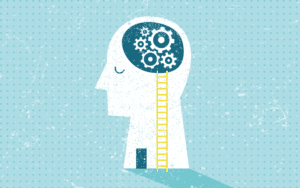WHO: New Mental Health Initiative
The World Health Organization aims to expand mental health coverage to 100 million more people in 12 priority countries by 2023. This is as part of a new Special Initiative for Mental Health launched at the start of the 11th World Mental Health Forum.
According to WHO, mental health disorders account for 1 out of every 5 years lived with disability globally and cause over US$ 1 trillion per year in economic losses. Someone dies by suicide every 40 seconds, and suicide mortality disproportionately affects young people and elderly women in low- and middle-income countries. People with mental health conditions are also more likely to face other physical health problems (e.g. HIV, TB, and noncommunicable diseases), reducing their life expectancy by as much as 10-20 years.

Over 20 Health Ministers from countries around the world attended the forum along with NGO representatives and WHO officials. The Special Initiative aims to integrate mental health into the WHO NCD platform.
Political action in mental health has been gaining traction since the WHO Director-General called for the agency to accelerate implementation of mental health initiatives in its work.
The goal of the new initiative is to ensure “quality and affordable mental health care,” said Devora Kestel, director of the WHO Department of Mental Health and Substance Abuse.
Strategic aims of the special initiative
Two key strategic aims will guide the Special Initiative. They include:
1. Advancing mental health policies, advocacy, and human rights:
- Globally, position mental health high on the development and humanitarian agendas,
- Engage local champions, people who use mental health services, and their organizations and empower them to participate in the development and implementation of mental health policies, strategies, laws and services,
- Ensure mental health policies, strategies and laws are developed and operationalized based on international human rights standards,
- Raise media and community awareness about the importance of mental health across the life course, and
- Align human and financial resources for mental health with the need.
2. Scaling up interventions and services across community-based, general health and specialist settings:
- Scale up quality, affordable mental health care across health and social services,
- Integrate quality, affordable mental health care into relevant programmes (e.g. for HIV, gender-based violence, disabilities),
- Include mental health and psychosocial support in preparedness, response and recovery in emergencies,
- Develop and implement priority interventions for groups in positions of vulnerability (e.g. women, children, youth, older people, staff), and
- Document, monitor and evaluate implementation to improve services.
The 12 countries for the pilot initiative were chosen at the forum.
US$ 60 million of “catalytic funding” will be needed to kick start the plan, but as the programmes would be embedded in existing health systems only US $1 million per country per year would then be needed to sustain programming in the 4 years afterwards. WHO is focusing on sustaining the programme over time.
We intend to contribute [to realizing the right to health] through our Special Initiative,” said Devora Kestel, director of the WHO Department of Mental Health and Substance Abuse, as per Health Policy Watch.
Devora Kestel, director, Department of Mental Health and Substance Abuse, WHO